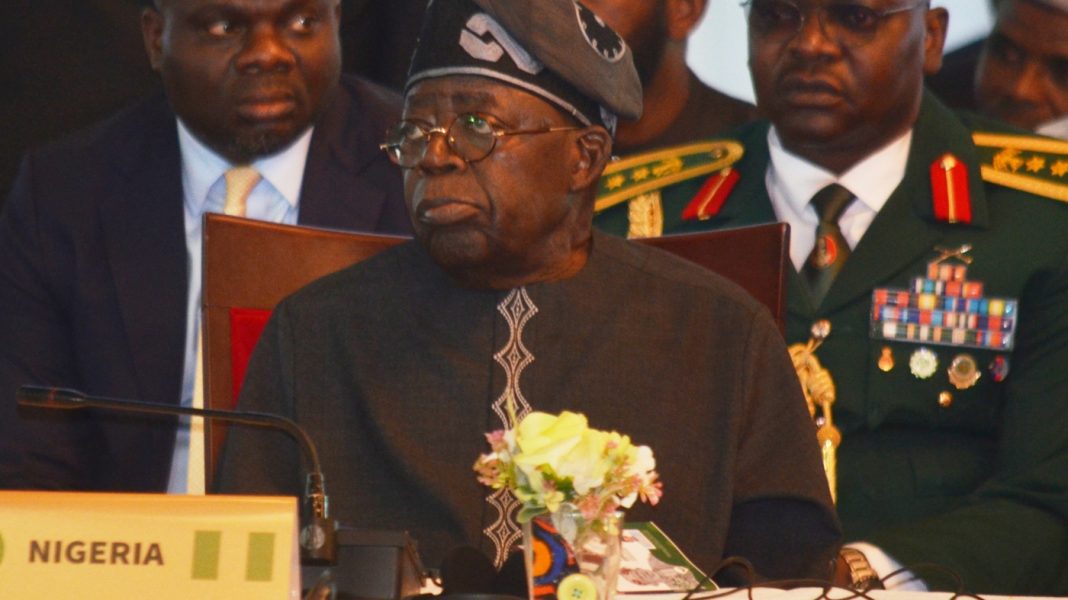<p>Okay, let’s talk about something that’s been making waves, and honestly, raising a few eyebrows. The conversation around former President Trump’s recent <strong>threat</strong> of a potential military intervention in Nigeria over claims of Christian persecution? Yeah, it’s a lot. It’s got everyone from policy wonks to the average news scroller wondering, ‘Wait, what’s going on here?’ This isn’t just a political soundbite; it’s a proposed course of action that could have massive implications.</p>
<h2>The Allegations and the Stakes</h2>
<p>The core of this developing narrative revolves around persistent, grave allegations of severe persecution targeting Christian communities in Nigeria. We’re talking about disturbing reports of violence, kidnappings, and attacks attributed to various extremist groups, including Boko Haram, and, in some cases, escalating inter-communal conflicts. These claims are not new; humanitarian organizations and religious freedom advocates have been vocal about the escalating crisis for years, spotlighting the immense suffering and displacement of countless individuals.</p>
<p>The difference now is the specific mention of a potential U.S. military response, a move that would dramatically escalate the international dimension of an already complex internal conflict. It shifts the conversation from humanitarian aid and diplomatic pressure to the stark possibility of troops on the ground, a prospect that carries immense weight and potential for unforeseen consequences.</p>
<h2>Geopolitical Chessboard and Real Lives</h2>
<p>Nigeria isn’t just another country on a map; it’s Africa’s most populous nation, a significant economic player, and a regional powerhouse. It’s a nation grappling with a multitude of internal challenges – from economic woes to persistent security threats across its North. The idea of foreign military intervention, even under the guise of protecting religious freedoms, opens a Pandora’s Box of geopolitical considerations. It immediately raises thorny questions about national sovereignty, the effectiveness of such interventions in volatile regions, and the potential for a humanitarian mission to morph into something far more protracted and complicated.</p>
<p>As international relations analyst, <em>Dr. Lena Khan</em>, recently noted, <em>”Intervening militarily in a sovereign nation is always a decision fraught with immense risks. While humanitarian concerns are paramount, history shows us that such actions can often exacerbate existing tensions or create new, unforeseen instabilities, particularly in a region as sensitive and diverse as West Africa. It’s rarely a clean solution.”</em> Her words echo the cautious sentiment of many experts who understand the delicate balance of power and the intricate cultural tapestry of the region.</p>
<h2>Unpacking the ‘What If’ Scenario</h2>
<p>This isn’t just about the immediate crisis; it’s about setting a precedent and the broader implications for international policy. The rhetoric surrounding potential intervention sparks vital debates about international responsibility, the limits of national sovereignty, and the role of global powers in local conflicts. Would such a move be seen as a legitimate, albeit drastic, humanitarian effort? Or could it be perceived as an overreach, potentially fueling anti-Western sentiment or further destabilizing an already fragile peace? And what would it mean for the already strained relationships between various factions within Nigeria, not to mention its standing on the global stage? These are not easy questions, and the answers are even harder to predict.</p>
<p>So, where does this leave us? With a lot of unanswered questions and a highly charged discussion. The situation in Nigeria is undeniably critical, with real people facing severe threats and unimaginable hardship. But the proposed solution, a military deployment, introduces a whole new layer of complexity. It reminds us that global challenges rarely have simple answers, and sometimes, even well-intentioned interventions can carry unforeseen ripple effects. This is a story that demands our attention, not just for the immediate headlines, but for its profound implications on international policy and human lives.</p>




